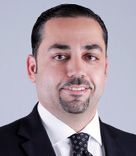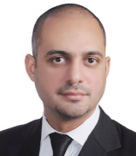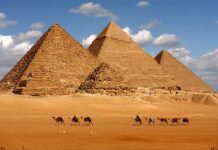As the year 2016 commences, the Middle East faces another combination of socio-political and economic challenges. In a post-Arab Spring Middle East, the so-called Islamic State extremist group poses a real threat to global security, the war in Yemen is under way, the fate of Syrian politics hangs in the balance, oil prices are at a record low, oil-dependent governments have implemented cuts in spending, and financial institutions have become conservative in lending, particularly for small- and medium-sized enterprises. The sluggish recovery of world markets from the global downturn adds to the challenges.

Al Tamimi & Company
合伙人
Partner
Al Tamimi & Company
But despite these challenges, the Middle East remains synonymous with rapid growth and development. Egypt is regaining political stability and its economic might. Foreign investors applaud the recent lifting of sanctions on Iran. The Lebanese and Jordanian economies are stable. Saudi Arabia, despite the decline in oil prices, is a formidable economic force. Most of the rest of the Middle East is on a growth trajectory. One economy that particularly shines is the UAE. The UAE has seen meteoric growth in the past few decades and made a swift recovery from the global economic downturn, which only temporarily dampened its market.
So the question arises, what is the secret to the performance of the Middle Eastern economies, despite continued adverse conditions? The answer lies in the Middle East’s resilience and innovation. In this article the authors discuss a few features of Middle Eastern economies, taking the UAE as a standard, which demonstrate such resilience and innovation.

Al Tamimi & Company
资深律师
Senior Associate
Al Tamimi & Company
Legislation
As the UAE embarked on its spectacular growth, there was a dire need to introduce modern legislation to support this growth. In order to balance the competing objectives of preserving its traditional laws and of introducing modern legislation, the UAE introduced the innovative concept of a dual legal system. The Dubai International Financial Centre (DIFC) was established with an independent body of laws and its own courts, founded on the English common law system. The DIFC has been an immense success, not only in Dubai but also regionally, where it serves as a parallel legislative and judicial system.
In the meantime, the traditional UAE laws evolve at their natural pace without artificial acceleration or pressures from the rapidly evolving economy, while these pressures are absorbed by the DIFC.
Free zones other than the DIFC also contribute significantly to modernization of legislation. At present most leading free zones are engaged in modernization of their legislation and regulatory approach.
Free zones
Foreign ownership limitations are common in the Middle East. The limitations on foreign ownership vary by country, and by the nature of activity. In order to balance the competing objectives of protecting local nationals and attracting foreign investment, Middle Eastern economies introduced the innovative concept of a free zone.
A free zone is a geographically defined area, designed as an economic zone, often catering to a specific industry, with its own set of commercial laws, where foreigners are permitted to own 100% of the companies. The free zone is free of income or corporate taxes (for a limited duration of time). Further, there are no restrictions on repatriation of funds.
A variety of corporate structures are available for incorporation, including a branch of a foreign company, a limited liability company (including a single shareholder limited liability company), and offshore companies.
A free zone company is not permitted to carry out business in the mainland. It may import goods into the free zone and export goods from the free zone globally. It may also export goods into mainland UAE on payment of import duty. Further, a free zone company may appoint an agent or a distributor in the mainland UAE to carry out activities at its behest.
Strategic planning
Beyond the legal wizardry, be it in unique solutions to modern legislative or foreign investment, the UAE in particular has planned well to achieve its economic success. Dependency on oil, which was the initial source of wealth, has decreased drastically. The UAE now has a well-rounded economy, hedging its income across tourism, trade, banking, real estate and manufacturing.
Accordingly, the UAE and other Gulf Co-operation Council (GCC) countries continue to attract quality human resources from across the world, making certain cities some of the most multicultural in the world. Many Middle Eastern countries offer state of the art public roads and transportation infrastructure. The spill-over benefit to businesses of such infrastructure is incalculable.
Regional bonds
The Middle East understands the importance of regional co-operation and has established and fostered strategic ties, notwithstanding political differences that may exist.
The GCC, which includes the UAE, Oman, Qatar, Bahrain, Kuwait and Saudi Arabia, is a prime example of such a bond. GCC countries grant each other various social, economic and political benefits and privileges. Today the UAE is an important gateway on the modern Silk Route between the East and the West. The UAE has not only become the window for the GCC to the world, but also a window for the world to the GCC.
The UAE’s gateway status makes it a key partner for China as well, and an important part of the “One Belt One Road” initiative by China, which aims to promote regional co-operation. Two-way trade between China and the UAE is expected to cross US$60 billion in 2016. The UAE’s strategic alliance with China was deepened further in December 2015, when both countries signed a US$10 billion joint investment fund.
Conclusion
Despite the challenges posed by the socio-political dynamics of the Middle East, most Middle Eastern countries remain economically strong. Their secret lies in inventing unique solutions to difficult challenges. The windfall revenues generated from the initial endowment of oil have been used wisely to develop and diversify the economy. They see regional co-operation as a necessary element of growth and are forging strategic ties.
Dubai International Financial Centre
6th Floor, Building 4 East
Sheikh Zayed Road, PO Box 9275
Dubai, UAE
电话 Tel: +971 (0)4 364 1641
传真 Fax: +971 (0)4 364 1777
电邮 E-mail:
s.qudah@tamimi.com
h.haider@tamimi.com
www.tamimi.com






















